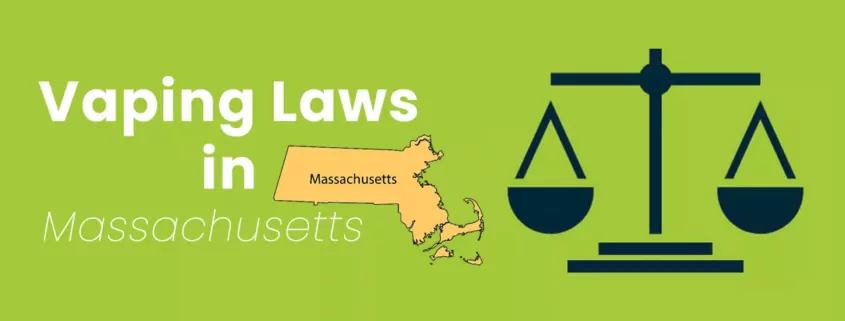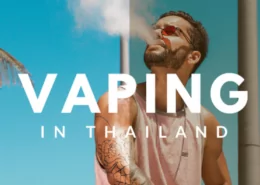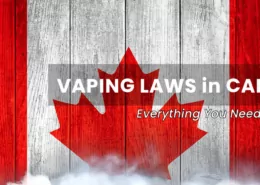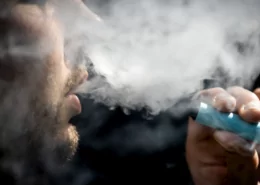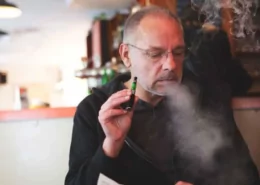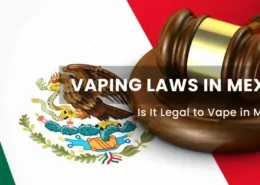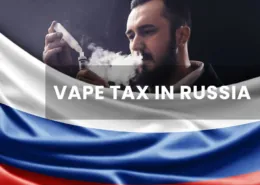Vaping Laws in Massachusetts – Is it Legal to Vape in Massachusetts?
Massachusetts has long been at the forefront of tobacco control and, more recently, has implemented some of the most stringent and comprehensive vaping regulations in the United States. Driven by a strong commitment to public health, particularly the prevention of youth access to and use of nicotine products, the Commonwealth’s legal framework is a complex interplay of state statutes, robust enforcement, and pioneering local ordinances.
As of mid-2025, understanding these multifaceted laws – covering everything from age restrictions and a sweeping flavor ban to high taxation and public use prohibitions – is crucial for consumers, retailers, and manufacturers. This guide provides an in-depth look at Massachusetts’s current vaping laws, helping you navigate this tightly regulated landscape.
The Legal Foundation of Vaping Laws in Massachusetts
At the heart of Massachusetts’s approach to vaping is a clear definition of what constitutes a regulated product and who can legally purchase and use it.
Defining “Tobacco Product” to Include Vapes
Massachusetts law, specifically Mass. Gen. Laws ch. 270, § 6(a), broadly defines “tobacco product” to explicitly include electronic cigarettes, e-cigars, e-pipes, vape pens, and any other products that rely on vaporization or aerosolization, regardless of whether they contain nicotine. This comprehensive definition ensures that nearly all vaping devices and their components fall under the state’s stringent tobacco control regulations. The Department of Public Health further clarifies that e-cigarettes are “battery-powered, noncombustible tobacco products designed to deliver nicotine and other substances to users by creating an aerosol that simulates smoking”.
Liquid nicotine containers are also specifically addressed, with mandates for child-resistant packaging.
Minimum Legal Sales Age (MLSA): Strictly 21, with a Generational Shift
Aligning with federal “Tobacco 21” legislation, the minimum age to purchase, possess, or be given any tobacco product, including all e-cigarettes and vapor products, in Massachusetts is 21 years old. This law, which took effect on December 31, 2018, (with full implementation for all retailers by January 1, 2019, as per the 2019 Tobacco Control Law, is a cornerstone of the state’s efforts to curb youth nicotine initiation.
Retailers are mandated to verify the age of any purchaser appearing to be under 27 years old by checking a valid government-issued photographic identification. Selling to underage individuals carries significant penalties, including escalating fines (from $1,000 for a first offense up to $5,000 for third and subsequent offenses and potential suspension or revocation of tobacco sales permits.
Pushing the boundaries further, Massachusetts is seeing a pioneering movement towards “Nicotine-Free Generation” (NFG) or generational tobacco/vape bans at the municipal level. Brookline became the first U.S. municipality to enact such a bylaw in 2020, prohibiting the sale of tobacco and vaping products to anyone born on or after January 1, 2000. This was upheld by the Massachusetts Supreme Judicial Court in Six Brothers, Inc. v. Town of Brookline. As of early 2025, at least 13 Massachusetts municipalities, including Newton, Chelsea, and Malden, have adopted similar bans, effectively creating cohorts of individuals who will never legally be able to purchase these products, regardless of turning 21. State legislators are also considering a statewide generational ban bill for 2025.
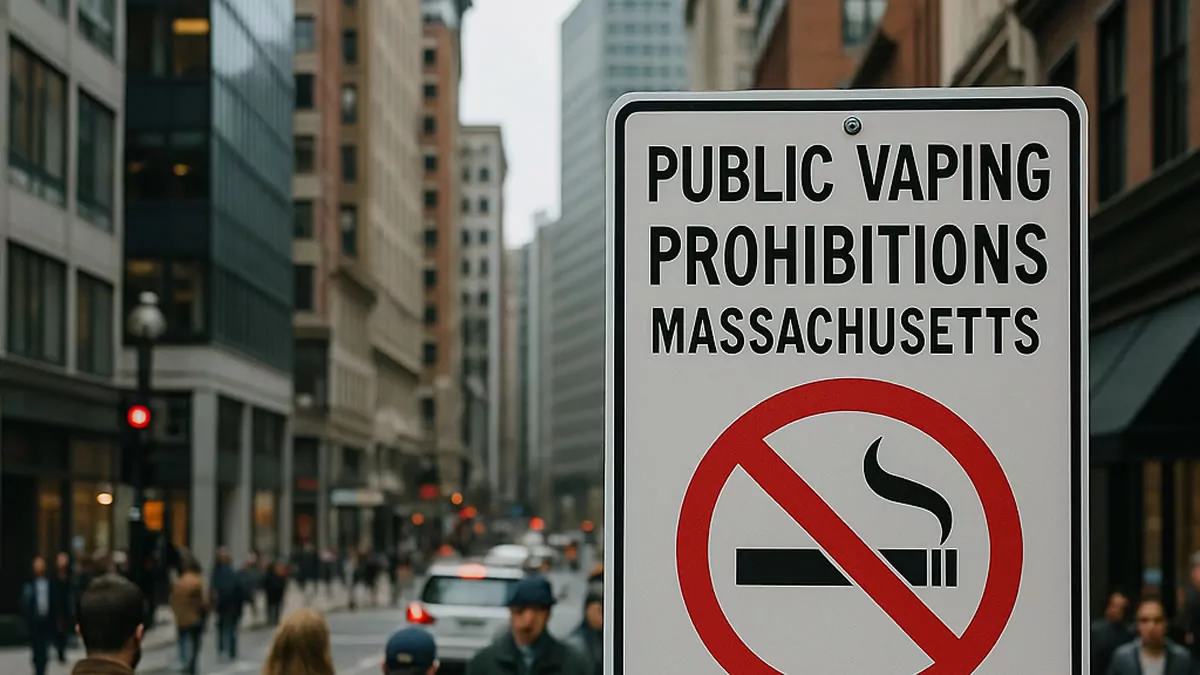
Public Vaping Prohibitions in Massachusetts
Massachusetts has comprehensive clean indoor air laws that explicitly extend to e-cigarettes, prohibiting vaping in all indoor public places and workplaces where traditional smoking is banned. This includes, but is not limited to:
- Restaurants and bars (except licensed smoking bars for on-site consumption.
- All private and public enclosed workplaces with one or more employees.
- Public transportation and stations.
- Schools, educational facilities, and childcare centers.
- Nursing homes and healthcare facilities.
The state received an “A” grade from the American Lung Association for the strength of its smoke-free workplace laws, which fully incorporate vaping.
The Flavor Ban in Massachusetts
One of the most significant and impactful pieces of vaping legislation in Massachusetts is its ban on the sale of all flavored tobacco and vaping products, which took full effect on June 1, 2020. This ban is among the strictest in the nation.
The prohibition covers:
- All flavored e-cigarettes, pods, and e-liquids.
- Menthol cigarettes.
- Flavored cigars and smokeless tobacco.
Under state law (Mass. Gen. Laws ch. 270, § 28, a “characterizing flavor” is defined as a taste or aroma, other than the taste or aroma of tobacco, imparted prior to or during consumption. This explicitly includes, but is not limited to, tastes or aromas relating to fruit, chocolate, vanilla, honey, candy, cocoa, dessert, alcoholic beverage, menthol, mint, wintergreen, herb, or spice.
The only exceptions for the sale and consumption of flavored vaping products are highly restricted:
- They can only be purchased and consumed on-site in licensed adult-only (21+) smoking bars.
- Online sales of flavored products are restricted to out-of-state purchasers only, effectively preventing their distribution to Massachusetts consumers via e-commerce.
This means that general retail establishments like convenience stores, gas stations, and grocery stores are prohibited from selling any flavored vaping products.
Ecigator is one of the well-known vape brands spun off from FM Technology Co., Ltd, it’s an ISO-certified disposable vape manufacturer for OEMs, ODMs, and OBM since 2010. The founder team comes from top firms with more than 10 years of experience in the vaping industry and has devoted thousands of hours to providing users with a better and better experience.
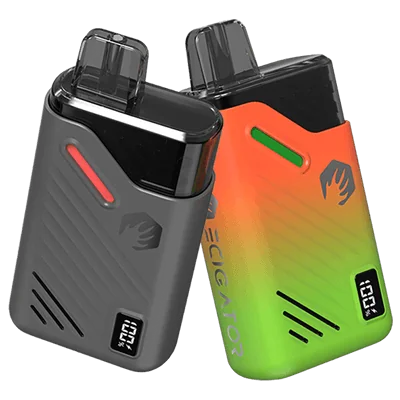
18K Disposable Pod Kit
Disposable Pod Kit – 18ml changeable pod with 650mAh rechargeable battery.
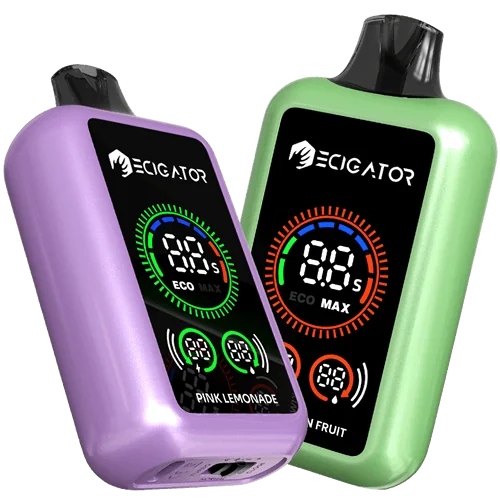
20K with Large Screen
20000 Puffs Disposable Vape with large screen. Normal and Boost working modes.
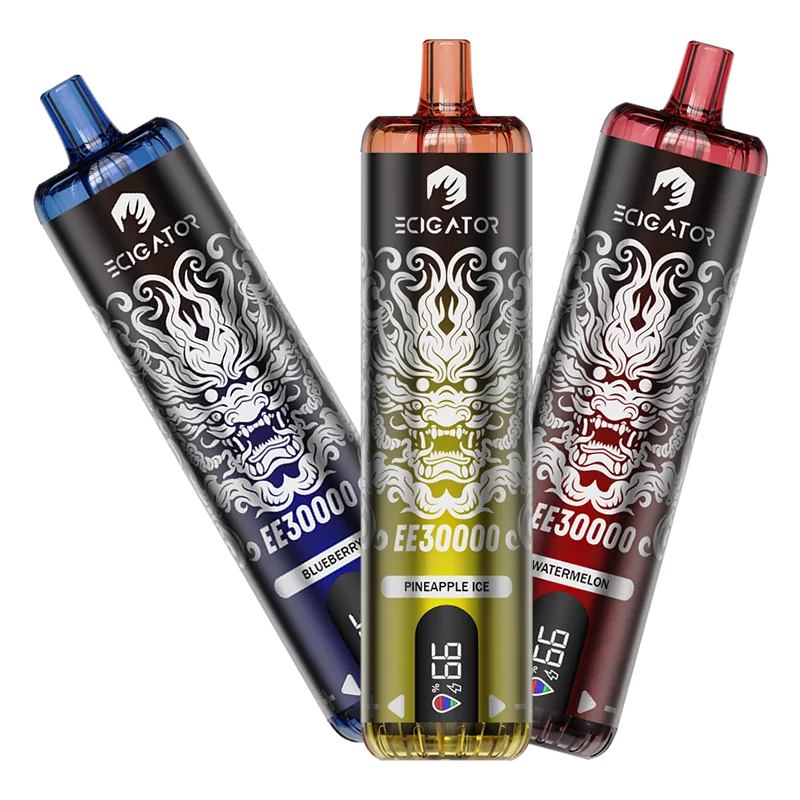
30K DTL Disposable
30K Puffs DTL(Directly to Lung) disposable vape with airflow control and screen.
The Vaping Tax in Massachusetts
To further discourage the consumption of vaping products, Massachusetts imposes a substantial 75% excise tax on the wholesale price of all vaping products, including both nicotine-containing and non-nicotine e-liquids. This tax, effective since June 1, 2020, is levied under Mass. Gen. Laws ch. 64C, § 7E(b).
This high tax rate increases the cost of legal vaping products, making them less affordable. The revenue generated is often directed towards tobacco cessation and prevention programs. However, this high tax, combined with the flavor ban, has also been linked to an increase in illicit market activity and cross-border sales from neighboring states with lower taxes or fewer flavor restrictions, like New Hampshire. State excise tax collections from these products reportedly declined from $526 million in 2020 to $354 million in 2024, partly attributed to this illicit trade. Governor Maura Healey’s fiscal year 2026 budget proposal includes extending taxation to synthetic nicotine products, potentially from August 1, 2025, though legislative support for new nicotine taxes can be uncertain.
Sales, Distribution, and Retail Regulations
The sale and distribution of vaping products in Massachusetts are subject to rigorous oversight:
- Retailer Licensing: All retailers wishing to sell tobacco and e-cigarette products must obtain a state license from the Department of Revenue and often a local permit from their municipal Board of Health.
- Face-to-Face Sales & Display Restrictions: Direct face-to-face transactions are mandated, and self-service displays are prohibited except in adult-only (21+) retail tobacco stores and smoking bars. Products must be kept out of customer reach.
- Online Sales Restrictions: As mentioned, online sales of flavored products to Massachusetts consumers are banned. For permitted unflavored online sales, robust age verification at purchase and an adult (21+) signature upon delivery are required.
- Packaging and Labeling: Liquid nicotine and gel products must be sold in child-resistant packaging compliant with federal standards. Retailers are prohibited from repackaging products or selling them in quantities smaller than the manufacturer’s original sealed packaging. Products must display mandatory health warnings.
- Sampling and Giveaways: Generally prohibited, with very limited exceptions for licensed adult-only retail tobacco stores and smoking bars.
Enforcement and Penalties
Enforcement of Massachusetts’s vaping laws is a collaborative effort involving the Department of Public Health (DPH), the Attorney General’s Office, the Department of Revenue (for tax compliance), and local boards of health. A key component is the Multi-Agency Illegal Tobacco Task Force, which has significantly ramped up enforcement activities, particularly since the flavor ban.
Penalties for violations are substantial and can include:
- Civil fines up to $10,000 per violation for injunction violations, with each day of non-compliance treated as a separate offense. First-time violators without prior convictions may see caps around $2,500.
- Criminal penalties, especially for tax evasion combined with selling banned flavored products. Cases like that of Ashraf Youssef, who received jail time and probation for evading over $467,000 in excise taxes on illegal e-cigarette sales, highlight the severity. Such combined offenses can be treated as felonies, carrying potential prison sentences up to five years.
- Administrative penalties from local boards of health, including permit suspensions and restrictions on renewals.
The surge in enforcement is evident in seizure data. Illegal vape seizures reportedly increased by 744% following the flavor ban, with figures jumping from approximately 71,746 units in FY2022 to over 279,000-308,000 units in FY2024. This has created operational challenges, including storage and destruction of seized contraband.
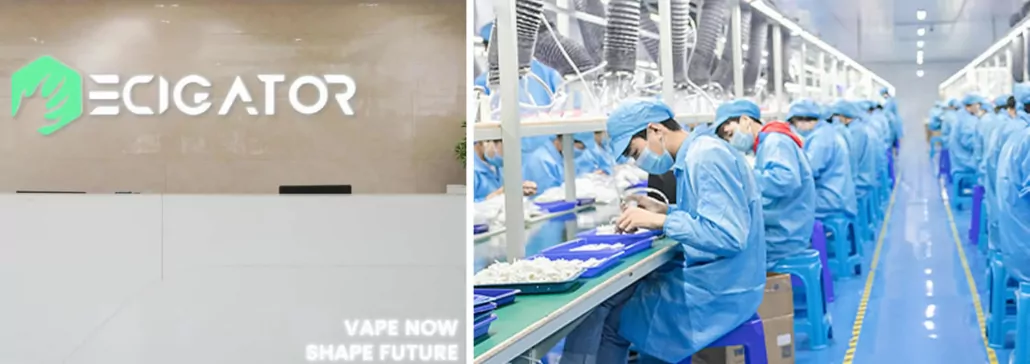
ECIGATOR
Ecigator is one of the well-known vape brands spun off from FM Technology Co., Ltd, it’s an ISO-certified disposable vape manufacturer for OEMs, ODMs, and OBM since 2010. The founder team comes from top firms with more than 10 years of experience in the vaping industry and has devoted thousands of hours to providing users with a better and better experience.
Breakdown of Massachusetts Vaping Laws
The following table summarizes the key aspects of Massachusetts’ vaping regulations, providing a quick reference for consumers and retailers.
| Regulatory Aspect | Massachusetts Law as of June 2025 | Details and Exceptions |
|---|---|---|
| Minimum Age for Purchase | 21 years old | Applies to all tobacco and vapor products; strict age verification required. |
| Flavored Product Ban | Comprehensive ban (including menthol) | Only permitted in licensed adult-only smoking bars for on-site consumption; online sales to out-of-state purchasers only. |
| Nicotine Content Restrictions | ≤35 mg/mL in non-flavored products for general retail; >35 mg/mL restricted to adult-only stores. | Aims to control potency and accessibility in mainstream retail. |
| Excise Tax | 75% on nicotine-containing vaping products | Applies to all e-cigarettes and related devices; revenue supports cessation programs. |
| Public Vaping Restrictions | Prohibited in all indoor public spaces (workplaces, restaurants, bars) | Mirrors traditional smoking bans; includes recreational children’s camps and patient areas. |
| Retail Licensing | Required for all sellers | Annual fee ($1,500 approx.); subject to renewal denial for violations (e.g., sales to minors). |
| Packaging Requirements | Child-resistant packaging mandatory for liquid nicotine/gel | Ensures safety and prevents accidental ingestion. |
| Online Sales Restrictions | Prohibited for flavored products to MA consumers; age verification for other mail-order sales | Strict controls to prevent circumvention of in-state bans. |
| Sampling/Free Distribution | Generally prohibited | Exceptions only in licensed retail tobacco stores or smoking bars. |
| Enforcement & Penalties | Fines, license suspension, criminal charges (e.g., tax evasion) | Increased illicit market activity and seizures; strong multi-agency task force efforts. |
Conclusion
Massachusetts has unequivocally positioned itself as a state with some of the most restrictive and proactively enforced vaping laws in the U.S. The combination of a strict 21+ age limit, a comprehensive ban on flavored products (including menthol), high excise taxation, extensive public use prohibitions, and pioneering local generational bans creates a formidable regulatory environment. While these measures are designed to protect public health and significantly curb youth vaping, they also present ongoing challenges related to illicit market activity and cross-border sales. For businesses, meticulous compliance and staying abreast of both state and local nuances are absolutely essential. For consumers, understanding the limitations on product availability and public use is key. As Massachusetts continues to innovate in tobacco and nicotine control, its policies will undoubtedly be watched closely by other states and public health advocates nationwide.
- Malaysia Negeri Sembilan Backs Vape Ban, Awaits Clear Laws - August 5, 2025
- Is It Illegal to Vape or Smoke While Driving in Massachusetts? - August 5, 2025
- Austria Plans to Ban Disposable E-Cigarettes - August 5, 2025

